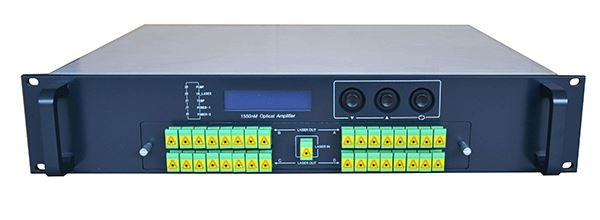EDFA (Erbium-doped Optical Fiber Amplifier)
EDFA is essentially an optical pump that absorbs the energy of the pump light.
EDFA (Erbium-doped Optical Fiber Amplifier), which is an erbium-doped fiber amplifier, is an active optical device that amplifies signal light. The main function is to perform power compensation on the signal light in the transmission link.
Why use EDFA: The transmission loss and dispersion of the optical fiber limit the transmission distance of the optical signal, so in long-distance transmission, a relay station (optical amplifier) needs to be added every certain distance. To ensure the transmission quality.
The manufacturing process of EDFA is to dope erbium ions in the core material silica of the optical fiber, and provide a separate pump light source outside, so that the erbium ions in the core are "stimulated" by the pump light, and the energy level The photon released by the transition; the EDFA optical amplifier is essentially the same as the laser. The light amplified by the laser is the light generated by the gain material in the resonator, and the amplifier amplifies the light input from the outside.
The basic structure of EDFA:

EDFA can also be connected in series for cascade amplification.
Because EDFA is also an optical fiber, the connection with the optical fiber is relatively easy, that is, the coupling efficiency is high.
The advantages of EDFA are low operating wavelength loss, high frequency bandwidth, high gain, and low noise.
The disadvantage of EDFA is that it can only amplify light in the 1550nm band.

